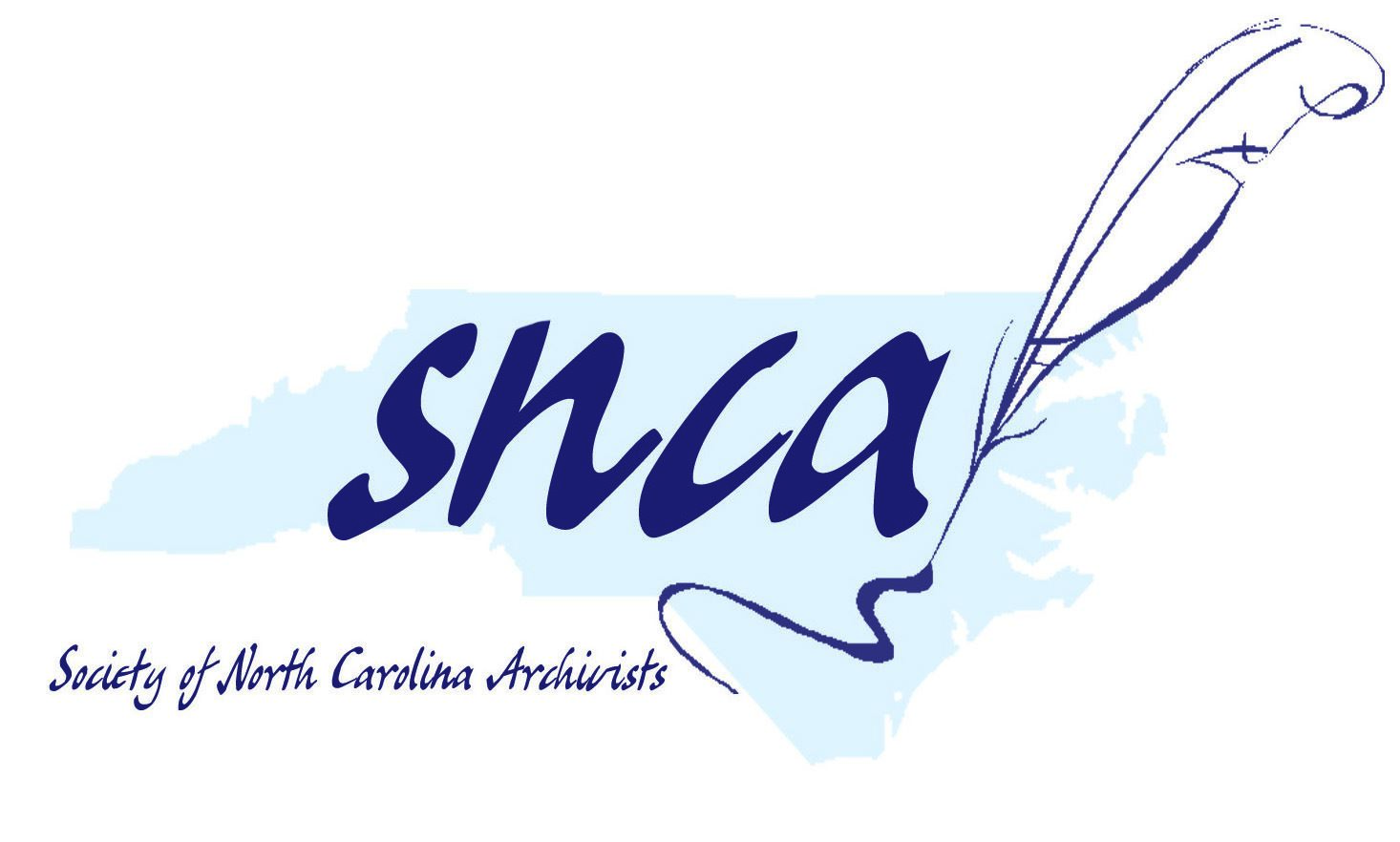This is the fifth and final in a series of Archives Month posts around this year's theme, North Carolina Travel, Tourism, and Vacation. It was written by Nathan Saunders, Associate Director Library Specialized Collections at UNC Wilmington.
Thousands of North Carolinians drive down Interstate 40 every Summer to enjoy Wilmington’s beach communities and historic sites. The North Carolina Azalea Festival, founded in 1948, has however grown over the past decades to become the region’s single most important tourist event. Before 2020, the annual celebration attracted hundreds of thousands of visitors to the Lower Cape Fear every April.
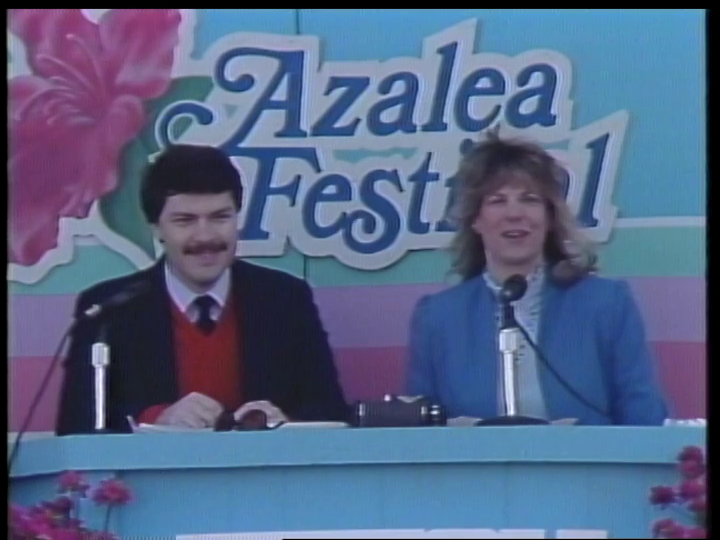
From the WWAY Television News Archive
Like other festivals throughout the South, planners drew these visitors in large part by highlighting familiar tropes of “moonlight and magnolias” southern gentility while ignoring the region’s historic Black communities. As all-white civic groups led the parade, hosted garden tours of Wilmington’s most elite white homes, and each year crowned white C-list soap opera actresses as Queen Azalea, the Festival’s events projected the image of Wilmington as a peaceful, leisurely spot to live and play while obscuring the Black labor that made it possible for white elites to relax and socialize in the clubs that planned the festival each year.
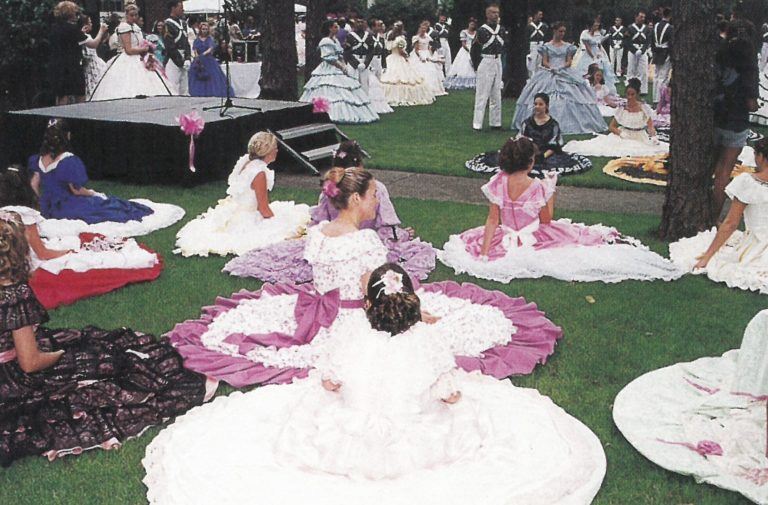
The Azalea Festivals of the 1980s witnessed the beginnings of an uneven but interesting culture shift. While not completely redirecting the event’s focus, a few key developments revealed an implicit understanding that the Festival’s first forty years were less than representative of the city’s population. Black celebrities began to figure more prominently in the Festival during the 1980s as officials named professional football player and actor Bubba Smith the parade’s first Black grand marshal in 1982, followed a year later by Diff'rent Strokes actor Todd Bridges, and then by favorite son Michael Jordan in 1984. The 1985 Azalea Festival saw the first Black Queen Azalea – Cosby Show actress Phylicia Rashad. As the female lead of the highest rated sitcom of the 1980s, Rashad was arguably the most famous of the Queens to date.

Phylicia Rashad (From the WWAY Television News Archive)
Azalea Festival musical acts were more diverse from an earlier date, with Cab Colloway, Dionne Warwick, and the Four Tops performing during the 1970s and early 1980s. The Festival’s staunch commitment to middle-of-the-road adult pop and country acts gradually gave way, however, so that by the second decade of the new millennium the Azalea Festival stage regularly featured rappers like Nelly (2015) and Snoop Dogg (2016). Festival patrons could therefore tour gardens with teenage hoop-skirted belles twirling parasols by day while enjoying decidedly non-genteel music by night.
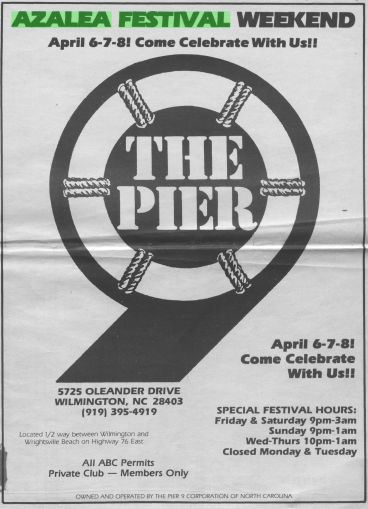 1984 advertisement in The Front Page
1984 advertisement in The Front Page
As the official Azalea Festival program slowly and unevenly expanded its celebrity invitations and entertainment offerings, some members of the Wilmington community coordinated their own unsanctioned events on Azalea Festival weekend. The Raleigh gay and lesbian newspaper The Front Page throughout the 1980s advertised various attractions and gatherings that coincided with the April influx of visitors to the Port City. David’s, a gay bar downtown on Market Street, put its own spin on the Azalea Pageant, which culminated in the coronation of a rival Queen Azalea.
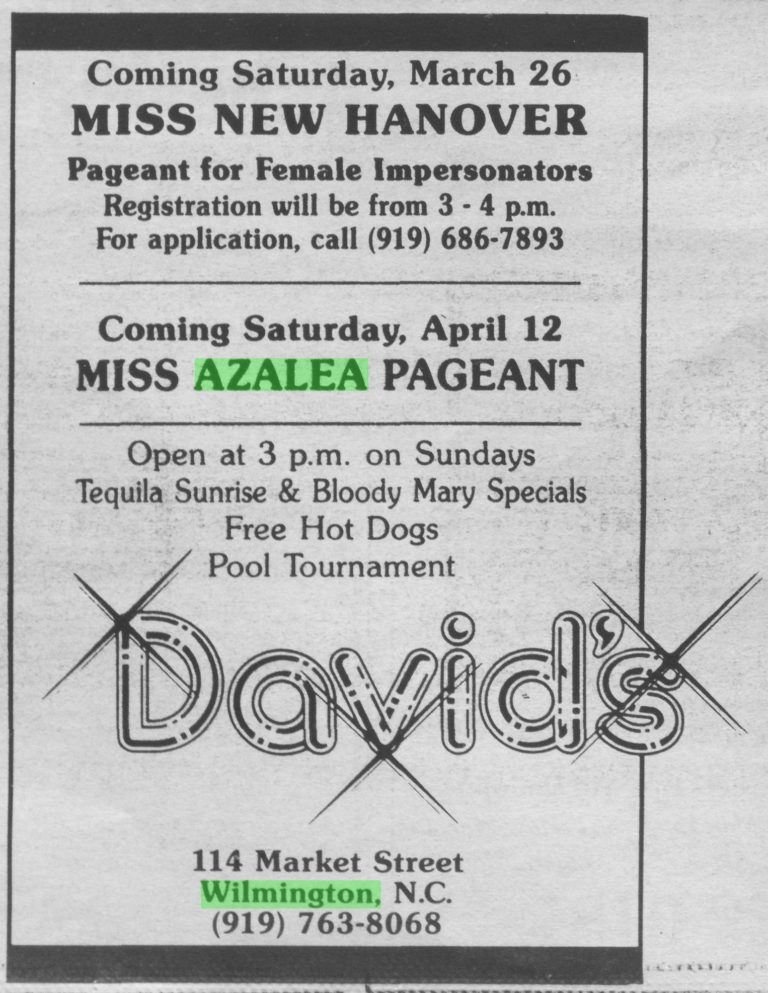
1988 advertisement in The Front Page
The Festival in fact named actress and Wilmington native Briana Venskus the first openly bisexual Queen Azalea in 2019. It turns out that Venskus presided over the end of an era for the Port City’s celebration of leisurely southern civic mindedness. In the aftermath of the unprecedented cancellation of the 2020 Azalea Festival due to COVID and the ensuing racial unrest that followed the murder of George Floyd, Cape Fear Garden Club officials announced that in an effort to promote diversity and inclusion, garden tours would no longer feature the belles that had been one of their hallmarks since 1969.
In the wake of COVID-19, Wilmington has yet to hold another Azalea Festival. Those Chamber of Commerce leaders who pioneered the event during the late 1940s appear to have achieved their original goal of bringing tourist dollars to the Port City during the off season. At the same time, they would have found little familiar in the Festivals of the 2010s. Only time will tell if anything at all from old Azalea Festivals persists, besides the beautiful flower that symbolizes spring in the South.
